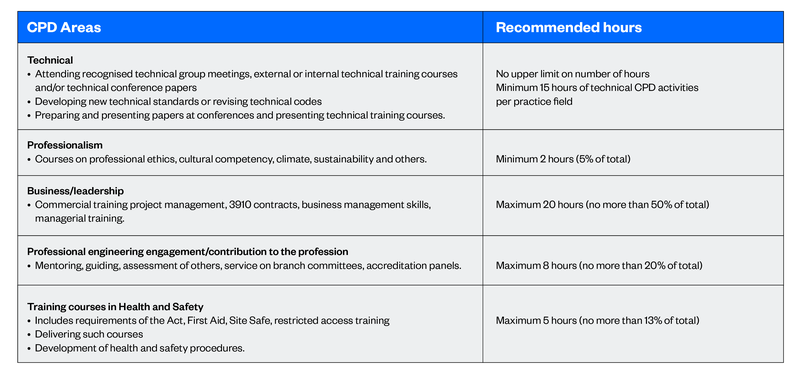If you’re part of Engineering New Zealand as an Emerging Professional, Member, Chartered Member, Fellow or Distinguished Fellow, you’ll make a pledge each year to comply with the Code of Ethical Conduct.
The Code includes a requirement to ensure relevant skills and knowledge are kept up to date. The knowledge commitment requires completing a minimum 40 hours of CPD activities each year, unless you’re on a career break or you’re a retired member with an exemption. There is no limit on the CPD activities you can complete. Some basic and broad recommendations for your CPD programme are:
- aim to do a range of CPD activities across different competency domains
- make sure the activities you choose are appropriate to your career stage and help you maintain or improve your knowledge, skill or judgement in your area of engineering practice.
What counts towards my CPD?
CPD can be comprised of tertiary courses, short courses, workshops, seminars, discussion groups, conferences, technical inspections and non-routine technical meetings that contribute to your development as an engineering professional.
Self-learning, which could comprise a mixture of self-reading, self-research or watching technical informative videos, can also be counted towards CPD – but this should be no more than 50% of your total CPD for each year.
Work activities only count towards CPD if they’re non-routine and contribute to your development as an engineering professional.
What if I’m applying to become or renewing my status as a Chartered Professional Engineer?
For the Chartership assessment process to be successful, it is necessary to demonstrate an appropriate range of CPD learning activities have been completed within your current practice area over the past six years or since graduation.
A good mix of CPD is a requirement and your CPD activities must demonstrate your new learnings in your chosen practice area. The table below sets out the ideal mix of CPD for CPEng applications:


